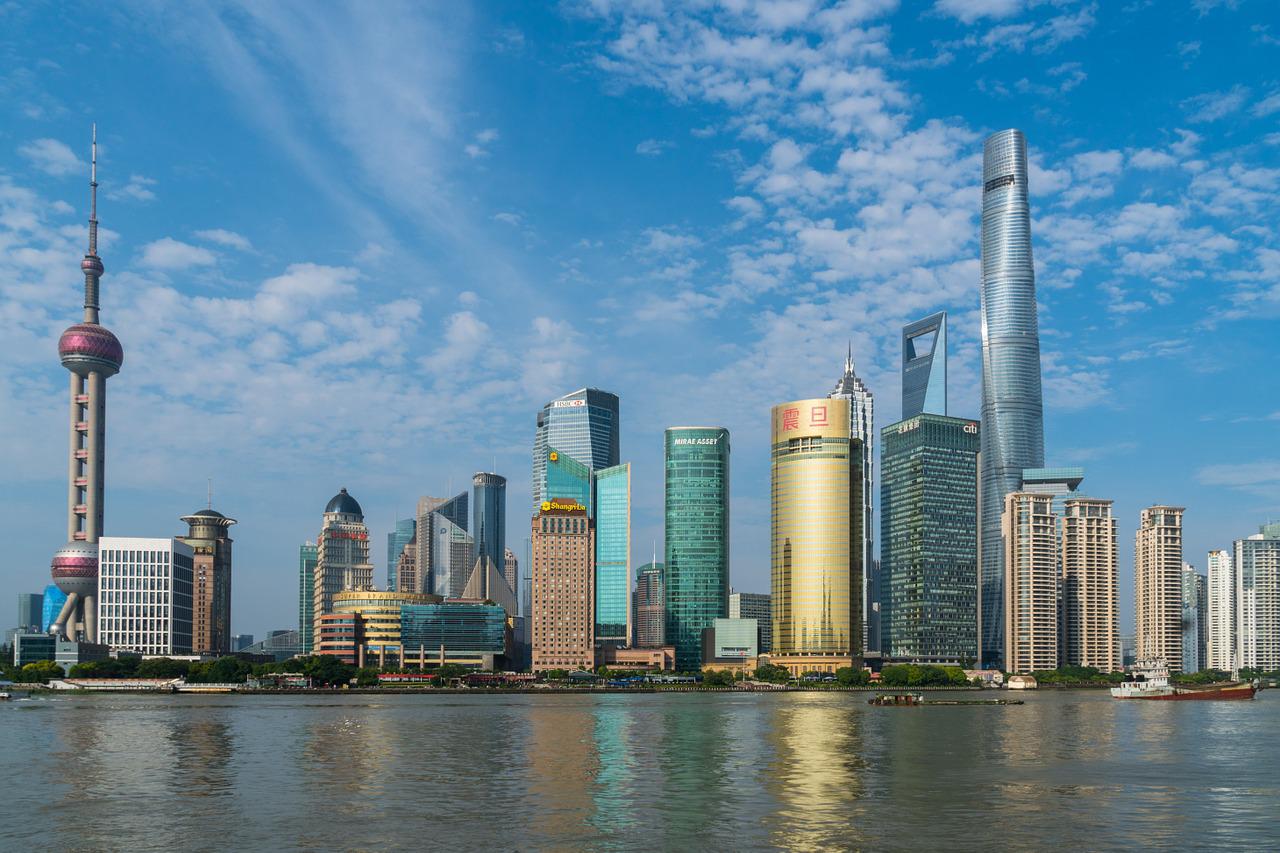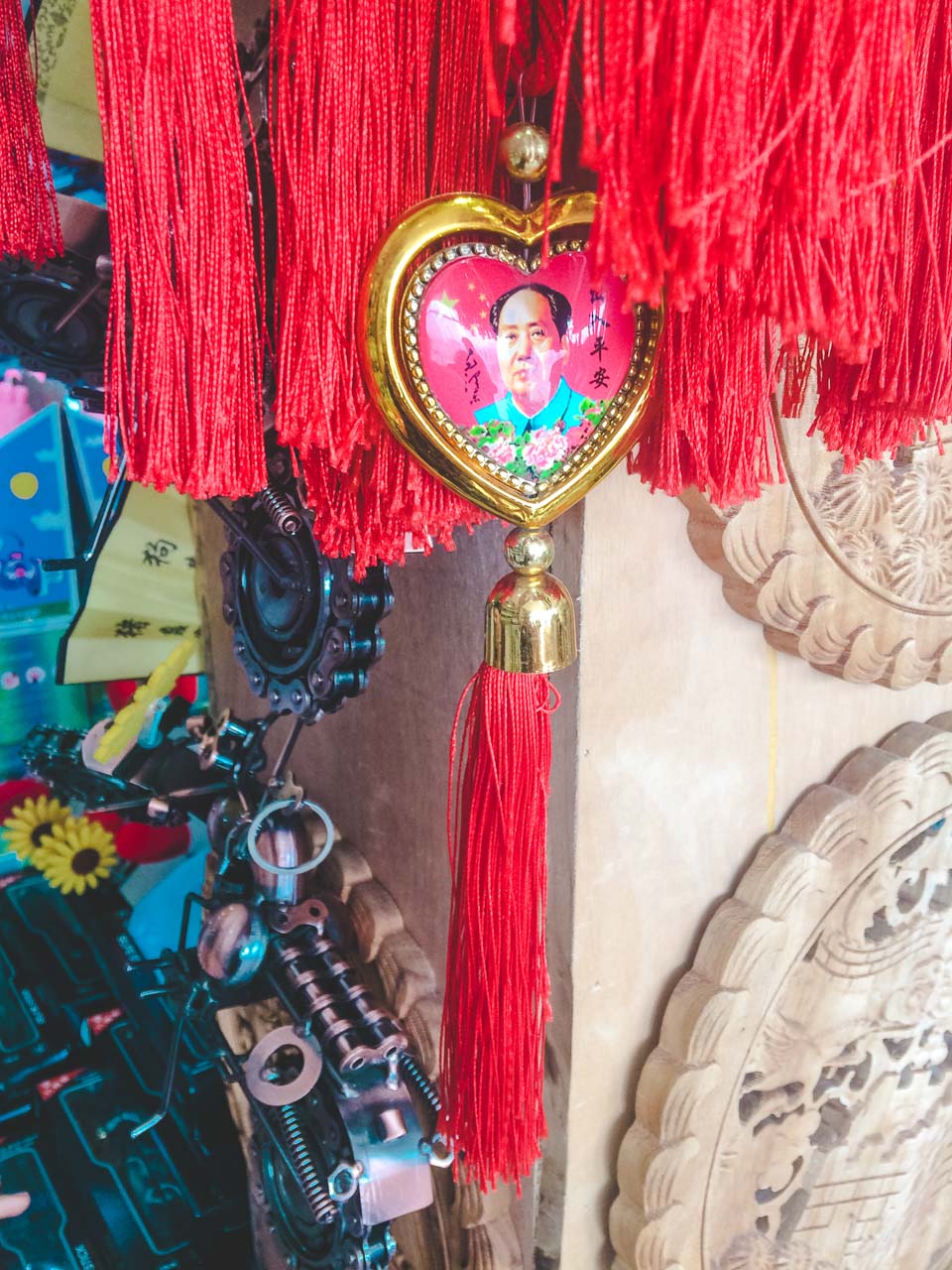Exploring China: A European's First-Timer Guide

Introduction
Overview of China
China, a vast and diverse country in East Asia, is a land of contrasts, blending ancient traditions with modern innovation. From bustling metropolises to serene rural landscapes, China offers a plethora of experiences for travellers to explore. With a rich history spanning thousands of years, China boasts a treasure trove of cultural heritage sites, breathtaking natural scenery, and delicious cuisine.
Highlights of China:
- The Great Wall of China, an iconic symbol of ancient Chinese architecture.
- The majestic Yangtze River, the third longest river in the world.
- The Terracotta Army in Xi'an, a remarkable archaeological site dating back to the Qin Dynasty.
- Vibrant cities like Beijing, Shanghai, and Hong Kong that showcase China's dynamic urban culture.
What to expect as a European traveller
Travelling to China as a European offers a captivating cultural experience filled with intriguing encounters and memorable moments. As a European traveller, you can expect a blend of traditional customs and modern amenities that cater to a wide range of interests.
Travel Expectations for European Visitors:
- Warm hospitality from the locals who are eager to share their culture. - Language barriers may pose challenges, but many Chinese people speak some English in tourist areas.
- A variety of transportation options, from modern high-speed trains to bustling metro systems.
- A diverse culinary scene with tantalizing flavours and regional specialities to indulge in.
- Unique shopping experiences in bustling markets and modern malls showcasing both traditional and trendy goods.
In the upcoming sections, we will delve deeper into essential aspects of travelling in China, such as visa requirements, language tips, cultural etiquette, must-visit destinations, and more. Let's embark on a journey to uncover the wonders of China awaiting European travellers.
Visa and Important Documents
Visa application process
Before embarking on your journey to China, it is crucial to familiarize yourself with the visa application process to ensure a smooth entry into the country. As a European traveller, you will typically need a tourist visa to visit China for leisure purposes.
Visa Application Steps:
- Determine the type of visa required based on your travel purpose (tourism, business, etc.).
- Complete the visa application form accurately with all necessary information.
- Gather required documents such as a valid passport, passport-sized photos, and proof of accommodation.
- Submit your application to the Chinese embassy or consulate in your country.
- Pay the visa fee and wait for processing, which can take a few days to a couple of weeks.
Other essential documents for travel
Apart from the visa, there are other important documents that European travellers should have on hand while visiting China to ensure a hassle-free journey.
- Passport: Ensure your passport is valid for at least six months beyond your planned stay in China.
- Travel Itinerary: Have a detailed itinerary of your trip, including flights, accommodations, and activities.
- Health Insurance: Purchase travel insurance that covers medical expenses in case of emergencies.
- Currency: Carry sufficient Chinese currency (renminbi) or internationally accepted credit/debit cards.
- Contact Information: Keep a copy of important contacts, such as your embassy and accommodations.
- Copy of Visa: Have a copy of your visa to present when required during your stay.
By preparing and organizing these essential documents in advance, you can enjoy a stress-free travel experience in China, focusing on exploring the wonders this captivating country has to offer.
Language and Communication
Basic Mandarin phrases for travellers
While travelling in China, especially as a European visitor, knowing some basic Mandarin phrases can greatly enhance your interaction with locals and enrich your overall experience. Mandarin is the most widely spoken language in China, and while English is spoken in tourist areas, learning a few key phrases can show respect and help you navigate daily interactions more effectively.
Useful Mandarin Phrases:
- Ni Hao (你好): Hello
- Xie Xie (谢谢): Thank you
- Zai Jian (再见): Goodbye
- Qing Wen (请问): Excuse me
- Wo Yao (我要): I want
- Dui Bu Qi (对不起): I'm sorry
- Ming Tian Jian (明天见): See you tomorrow
- Zai Na Li (在哪里): Where is…
Practising these simple phrases can help you communicate basic needs and engage with locals in a more meaningful way during your travels in China.
Language translation apps and tools
In addition to learning basic Mandarin phrases, utilizing language translation apps and tools can be incredibly beneficial for European travellers navigating the language barrier in China. These handy tools can assist in translating signs, menus, and conversations, making communication smoother and more efficient.
- Google Translate: Offers text, voice, and image translation for over 100 languages.
- Baidu Translate: Popular Chinese translation app with offline capabilities.
- Pleco: A comprehensive Chinese-English dictionary and translation app.
- Waygo: Ideal for translating menus and signs using your phone's camera.
By downloading and familiarizing yourself with these language translation apps, you can overcome language barriers effectively and interact more comfortably with locals during your visit to China. Embracing the language and communication aspects of your journey will undoubtedly enrich your travel experience and foster deeper cultural connections.

Cultural Etiquette and Tips
Understanding Chinese customs and traditions
Exploring China's rich cultural heritage requires a nuanced understanding of its customs and traditions, deeply rooted in history and symbolism. As a European traveller, embracing and respecting Chinese customs can enhance your cultural immersion and interactions with locals.
- Respect for Elders: Address elders with reverence and deference, using proper titles.
- Gift Giving: Present gifts with both hands as a sign of respect, and avoid giving clocks or anything in sets of four.
- Dining Etiquette: Wait to be seated, use chopsticks properly, and never stick them upright in your food.
- Greetings: Use a slight bow or nod as a greeting, and avoid excessive physical contact.
- Visiting Temples: Dress modestly and follow temple rules, such as removing shoes before entering.
By familiarizing yourself with these customs and traditions, you can navigate cultural interactions with grace and appreciation during your journey through China.
Tips for respectful behaviour in China
Respecting local norms and practices is essential for a harmonious and enjoyable stay in China. As a European traveller, being mindful of etiquette and cultural sensitivities can positively impact your interactions and experiences in this fascinating country.
- Personal Space: Chinese culture values personal space differently; be mindful of proximity when communicating.
- Punctuality: Arrive on time for appointments and tours, as punctuality is highly regarded.
- Public Behavior: Avoid loud conversations and disruptive behaviour in public spaces.
- Tipping: Tipping is not customary in China; instead, offer a polite thank you for services.
- Photography: Ask for permission before taking photos, especially in sensitive or sacred areas.
By adhering to these respectful behaviours and etiquette tips, you can navigate cultural nuances with ease and show your appreciation for the local customs and values in China. Embracing these practices will not only enhance your travel experience but also foster meaningful connections with the people you encounter along the way.

Top Destinations to Visit
Must-see attractions in Beijing
Beijing, the vibrant capital of China, is a treasure trove of historical landmarks, cultural sites, and modern marvels that captivate visitors from around the globe. As a European traveller, exploring the must-see attractions in Beijing offers a glimpse into China's rich past and dynamic present.
Iconic Attractions in Beijing:
- The Great Wall: A UNESCO World Heritage Site known for its awe-inspiring architectural feat and panoramic views.
- Forbidden City: The imperial palace complex showcases China's ancient architecture and imperial history.
- Tiananmen Square: A symbol of Chinese nationalism and a hub of cultural and political significance.
- Temple of Heaven: A masterpiece of Ming Dynasty architecture with stunning gardens and religious halls.
- Summer Palace: A tranquil retreat adorned with pavilions, bridges, and a picturesque lake.
Exploring these iconic landmarks in Beijing allows European travellers to immerse themselves in the historical and cultural essence of China's capital city.
Hidden gems off the beaten path
Beyond the popular tourist attractions, Beijing hides a treasure trove of hidden gems and lesser-known spots that offer a unique and authentic experience for intrepid travellers seeking off-the-beaten-path adventures.
- Lama Temple: A serene Tibetan Buddhist temple with intricate architecture and spiritual ambience.
- 798 Art District: A thriving art community housed in former factories featuring contemporary art galleries and studios.
- Beijing Hutongs: Explore traditional alleyways and courtyard residences to glimpse Beijing's historic charm.
- Fragrant Hills Park: Escape the city hustle to enjoy nature, vibrant foliage, and scenic views in this peaceful park.
- Peking Opera Performance: Witness a traditional Chinese opera performance for a cultural immersion experience.
Venturing off the beaten path in Beijing can uncover hidden treasures, local experiences, and authentic encounters that add a layer of depth and novelty to your exploration of this dynamic city.
:max_bytes(150000):strip_icc()/GettyImages-517833482-580cc3af5f9b58564cfda938.jpg)
Chinese Cuisine and Dining
Popular dishes to try
Chinese cuisine is renowned worldwide for its diverse flavours, rich culinary history, and unique regional specialities. As a European traveller in China, indulging in popular dishes offers a tantalizing sensory experience that reflects the country's cultural diversity and culinary expertise.
Must-Try Chinese Dishes:
- Peking Duck: Crispy duck skin served with pancakes, scallions, and hoisin sauce, a Beijing speciality.
- Xiaolongbao: Steamed soup dumplings filled with savoury meat and flavorful broth, a Shanghai delicacy.
- Hot Pot: A communal dining experience where diners cook a variety of meats, vegetables, and noodles in a simmering pot of broth.
- Mapo Tofu: Spicy tofu dish cooked with minced pork and Sichuan peppercorns for a fiery flavour.
- Dim Sum: Assortment of bite-sized dumplings, buns, and snacks served in bamboo steamers, a Cantonese tradition.
Exploring these popular Chinese dishes allows European travellers to savour the diverse tastes and textures that define Chinese culinary heritage.
Dining etiquette in China
Understanding and respecting Chinese dining etiquette is essential for a seamless and culturally sensitive dining experience in China. As a European visitor, embracing local customs and practices can enhance your interactions with hosts and fellow diners.
Etiquette Tips for Dining in China:
- Seating Arrangements: Wait to be seated and follow the host's lead on where to sit, typically facing the entrance.
- Chopstick Etiquette: Do not stick chopsticks upright in rice, and avoid tapping bowls with chopsticks.
- Table Manners: It is polite to try a bit of everything and finish dishes to show appreciation.
- Toast Etiquette: When toasting, hold your glass lower than the senior or host as a sign of respect.
- Payment: It is customary for the host to pay the bill; do not insist on splitting it unless you are close friends.
By observing these dining etiquette guidelines, European travellers can dine like locals, forge meaningful connections over shared meals, and fully appreciate the culinary delights that China has to offer.

Transportation and Getting Around
Public transportation options
Navigating the vast expanse of China is made convenient by a comprehensive public transportation network that caters to both local commuters and tourists. As a European traveller exploring this diverse country, familiarizing yourself with the various public transportation options can enhance your travel experience and help you efficiently move between destinations.
Public Transportation Choices:
- Metro: Major cities like Beijing, Shanghai, and Guangzhou boast extensive metro systems that are efficient, clean, and easy to navigate.
- Buses: Cities and towns across China have well-connected bus routes, providing an affordable way to travel short distances.
- High-Speed Trains: The high-speed rail network in China is one of the most extensive and fastest in the world, offering a comfortable and rapid mode of intercity travel.
- Taxis: Taxis are prevalent in urban areas and can be hailed easily, but ensure the driver uses the meter or agree on a fare before the journey.
- Didi (Ride-Hailing App): Similar to Uber, Didi is a popular ride-hailing app in China that offers convenient and safe transportation options.
Utilizing these public transportation modes allows European travellers to navigate China's bustling cities and scenic landscapes with ease and efficiency.
Hiring a car or driver
For travellers seeking a more personalized and flexible transportation experience, hiring a car or a driver in China can offer convenience and comfort, especially for exploring remote areas or embarking on sightseeing excursions.
Benefits of Hiring a Car or Driver:
- Flexibility: Create custom itineraries and explore off-the-beaten-path destinations at your own pace.
- Comfort: Enjoy a private and air-conditioned vehicle with a knowledgeable local driver who can provide insights and recommendations.
- Language Assistance: Overcome language barriers with a driver who may speak English and assist with communication.
- Safety: Ensure a safe and reliable mode of transportation, particularly for late-night journeys or unfamiliar routes.
- Convenience: Avoid the hassle of navigating public transportation or searching for taxi services, especially in less touristy areas.
By opting for car hire or driver services, European travellers can tailor their transportation experience to suit their preferences and embark on memorable journeys across China with convenience and peace of mind.

Safety and Health Tips
Staying safe while travelling in China
Ensuring your safety while travelling in China is paramount to a smooth and enjoyable trip. As a European visitor exploring this vast country, being mindful of your surroundings and taking necessary precautions can help you navigate unfamiliar environments with confidence.
Safety Tips for Travelers in China:
- Be Cautious with Valuables: Keep your belongings secure and be vigilant in crowded areas to prevent theft.
- Stay Informed: Stay updated on local news and travel advisories to avoid areas of potential unrest or safety risks.
- Use Licensed Transportation: Opt for registered taxis, reputable ride-hailing services, or official transportation options for peace of mind.
- Emergency Contacts: Keep a list of emergency contacts handy, including your embassy, local authorities, and accommodation details.
- Stay Hydrated: Carry bottled water and stay hydrated, especially in hot and humid weather.
By prioritizing safety measures and staying alert, European travellers can minimize risks and enjoy a safe and memorable journey through China.
Health precautions and vaccinations
Protecting your health while travelling in China involves proactive measures to prevent illness and ensure a comfortable stay. As a European traveller, understanding health precautions and considering necessary vaccinations can safeguard your well-being during your exploration of this diverse country.
Health Tips and Precautions:
- Travel Insurance: Obtain comprehensive travel insurance that covers medical emergencies and repatriation.
- Medical Kit: Carry a basic medical kit with essentials like pain relievers, antidiarrheal medication, and basic first aid supplies.
- Stay Updated on Vaccinations: Consult a healthcare provider to ensure that routine vaccinations are up to date and consider specific vaccines for China, such as hepatitis A and typhoid.
- Food and Water Safety: Exercise caution when consuming street food and ensure that drinking water is bottled or from a reliable source.
- Air Quality: Be mindful of air pollution levels, particularly in major cities, and consider wearing a mask if needed.
By proactively addressing health concerns and taking preventive measures, European travellers can prioritize their well-being and enjoy a rewarding and healthy travel experience in China.

Shopping and Souvenirs
Best markets and shopping districts
Exploring the vibrant markets and shopping districts of China offers European travellers a glimpse into the country's bustling commercial scene and diverse retail offerings. From traditional marketplaces to modern shopping complexes, China presents a plethora of shopping opportunities for visitors looking to indulge in retail therapy and discover unique treasures.
Top Shopping Destinations in China:
- Silk Market, Beijing: Known for a wide range of silk products, clothing, jewellery, and souvenirs.
- Nanjing Road, Shanghai: A bustling shopping street featuring luxury boutiques, department stores, and local vendors.
- Shenzhen Dongmen Market: A vibrant market offering a variety of electronics, fashion items, and local snacks.
- Old Town of Lijiang, Yunnan: Home to artisanal shops selling handcrafted items like silver jewellery, textiles, and traditional souvenirs.
- Hongqiao Pearl Market, Beijing: A hub for pearls, jewellery, accessories, and electronic gadgets at negotiable prices.
Exploring these markets and shopping districts allows European travellers to immerse themselves in the vibrant retail culture of China and bring home memorable souvenirs.
Unique souvenirs to bring back home
When it comes to selecting souvenirs to commemorate your trip to China, the country offers a wealth of unique and culturally significant items that make for cherished mementoes. From traditional handicrafts to modern keepsakes, there is something for every taste and preference.
Distinctive Souvenirs from China:
- Cloisonné Enamelware: Intricately designed vases, bowls, and ornaments featuring vibrant enamel patterns.
- Chinese Tea: High-quality teas like green tea, oolong tea, and pu-erh tea packaged in beautiful tins or boxes.
- Traditional Calligraphy Brushes: Elegant brushes made from bamboo, jade, or fine woods used for calligraphy and painting.
- Tangka Paintings: Hand-painted Tibetan Buddhist art depicting religious scenes and deities.
- Hand-Embroidered Silk Products: Silk scarves, bags, and clothing adorned with exquisite Chinese embroidery designs.
By selecting these unique souvenirs, European travellers can bring a piece of Chinese culture and craftsmanship back home, preserving memories of their journey and sharing the beauty of China's artistic heritage with friends and family.
